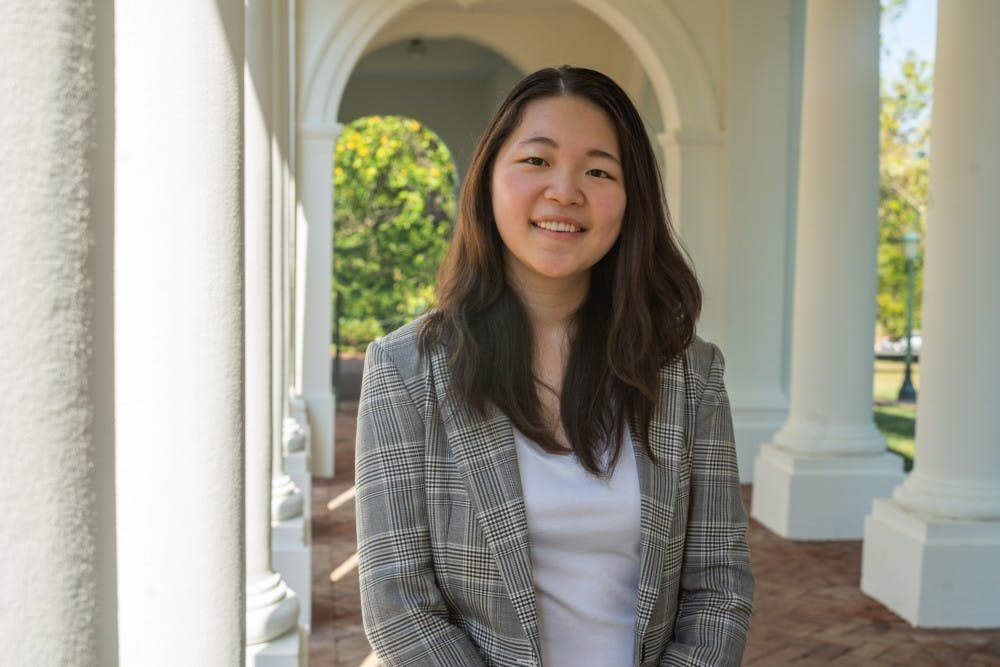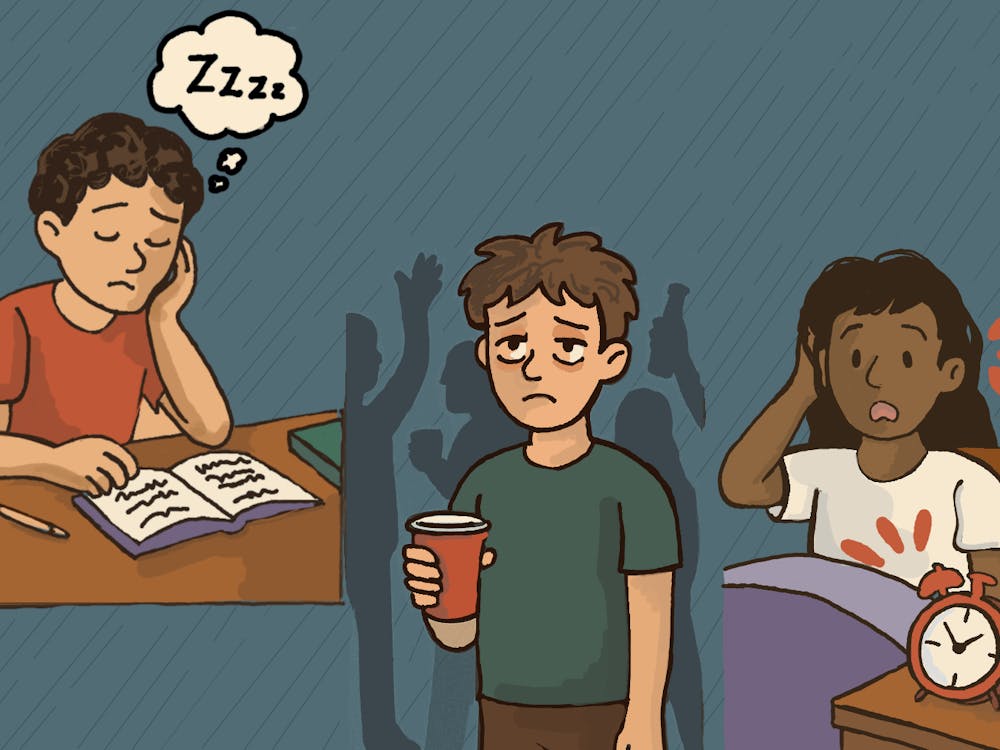It took me about two months to come to the abrupt realization that I — during what was supposed to be the most liberating time of my life — wasn’t exactly happy at the University.
It was a strange thing to process, and I found it difficult to fully understand the extent of my own feelings. I wasn’t unhappy, but there was something decidedly off about my time spent on Grounds, as though my world had become slightly askew. To make matters worse, I couldn’t quite pinpoint the root cause of my unease. I thoroughly enjoyed my classes, had no qualms with dorm life and was busy enough in my day-to-day life that I never felt bored. It wasn’t an issue of loneliness, either. I was allotting plenty of time to spend with friends and family both on and off Grounds. Things were good, and everything seemed to be fine — and yet I couldn’t rid myself of the little seed of discontent that lingered in my chest, telling me that I was missing something.
It was as though a cloud was misting over my thoughts. Life at the University was beginning to feel unreal, like a dream. Reality seemed distant and unreachable, and I worried that this was a symptom of a larger issue.
So I did what most people do when they have a problem — or at least that’s what I told myself at the time — and I vented to a group of friends. Extensively. You could argue that it was less of a vent and more of an incoherent rambling session. To my surprise, though, everyone I spoke with responded with similar sentiments. In a twisted way, it was reassuring to hear that I wasn’t the only one who was in a funk. The same cloud fogging up my brain was afflicting them. After a long, candid discussion, we came to the conclusion that there was one factor to blame — the U.Va. bubble.
The U.Va. bubble is perhaps best described as the barrier that divides life within the University and the outside world. Living on Grounds, it can feel as though the entirety of the University community is separated from society. The element of self-containment is what makes this especially prominent. Events held in Charlottesville — specifically those concerning the student body — tend to take priority over everything else happening in the world simply because it’s what everyone in the area talks about. Because of this, staying tethered to outside communities while still being active and staying involved on Grounds is more difficult than one would expect.
I had heard about the U.Va. bubble before, but I had always assumed that it could be easily shrugged off. Not once did I ever stop to think that it could be the source of my discomfort. Sure enough, though, the instant I left Grounds, news pertaining to the world at large hit me like a truck. Everything snapped into startling clarity. It was overwhelming, almost akin to a sensory overload. When the awe had subsided, I was left truly stunned at how much I had missed. Through no fault but my own, I had lost touch with life outside the University.
While on Grounds, it had been all too easy to forget that there even was a world beyond the University. I stopped reading the news. All the events I talked about with my friends and family related to the University in some way. I had allowed myself to get trapped in a cycle of University life without stopping to think about anything in a larger context — and this eventually evolved from feeling like an everyday part of attending college to feeling downright suffocating.
The U.Va. bubble isn’t inherently a bad thing, of course. It allows individuals to become immersed in a vibrant community and can help newcomers grow accustomed to life on a college campus. Delving too deep, however, can be harmful — as all things in excess are. Now that I’ve had time to reset over winter break, I’m fairly confident that I can return to Grounds feeling refreshed and ready to conquer the new semester. Maintaining the balance between University life and “real” life will be a priority for me now, and because of that, I’m hopeful that the U.Va. bubble will prove to be something that once again feels novel and exciting.







